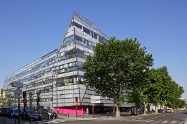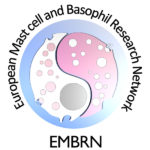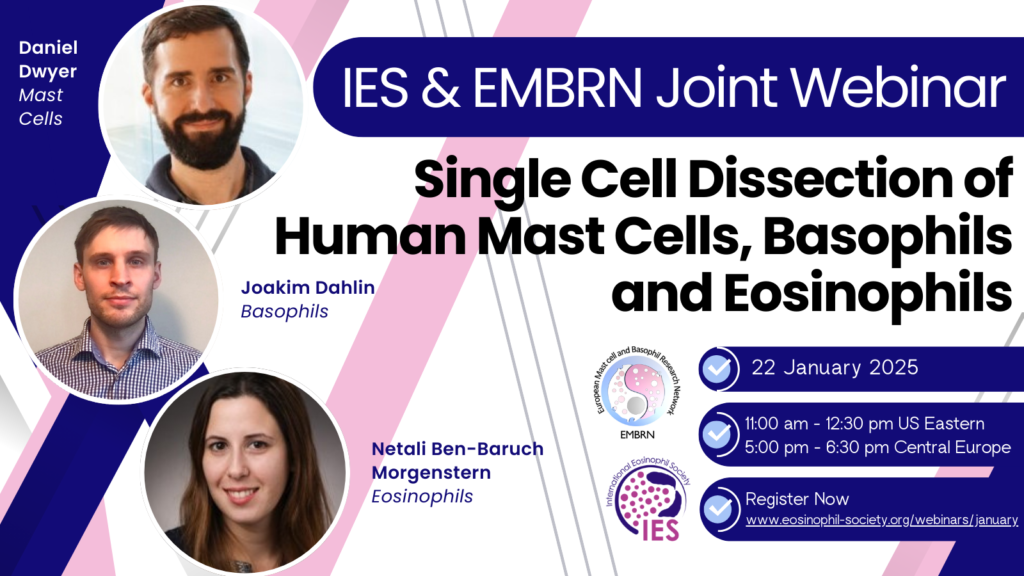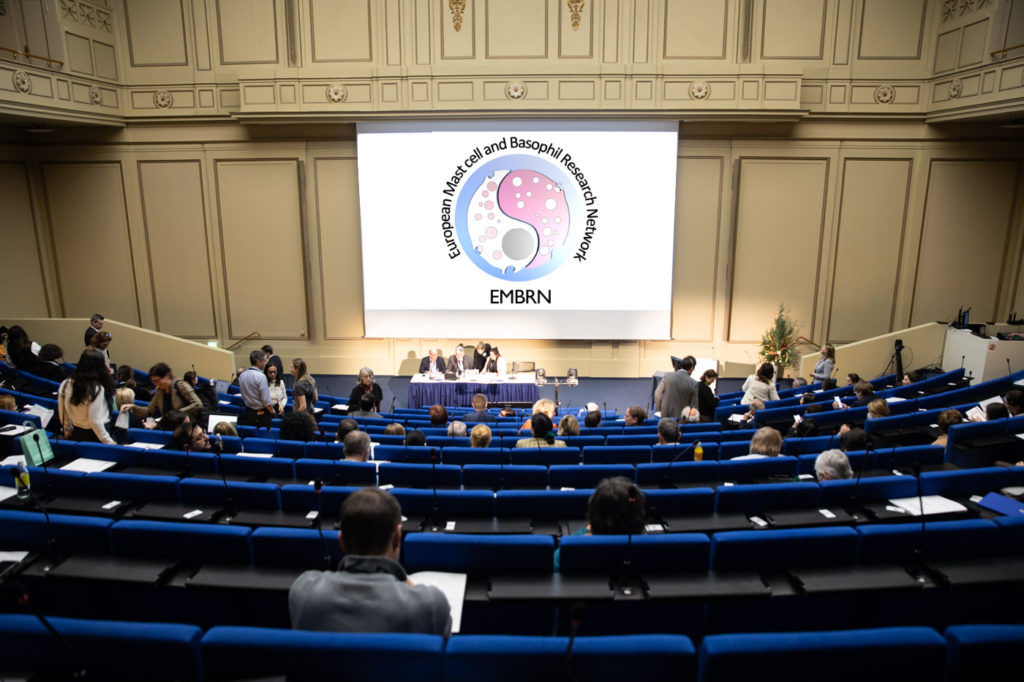Offer: The laboratory of Dr Gaël Ménasché at Imagine Institute (https://www.institutimagine.org/en/gael-menasche-et-fernando-sepulveda-188) is looking for a full-time Postdoctoral Research Fellow to take on an exciting translational project aimed to develop new therapeutic strategies for allergic diseases.
The position is offered for one year with the possibility for extension of an additional two years.
Keywords: Mast cells, allergies, anaphylaxis, secretory granules, mouse models, Rab44
Project: Allergies (i.e. asthma, atopic dermatitis, food allergy and anaphylaxis) have increased steadily since several decades in developed countries now affecting one person in three and constitute a major health problem. This epidemic explosion is the result of an interplay between a genetic predisposition in the population and a growing imbalance between the immune system and the altered environment in a modern hygienic society. This drives a Th2 response involving various immune effector cells that promote the formation of specific IgE antibodies to otherwise harmless antigens (allergens). Allergic diseases are then driven by activation of mast cells (MCs) and release inflammatory (preformed and neoformed) mediators in response to IgE-directed allergens. These preformed mediators (such as histamine) are stored in cytoplasmic secretory granules (SGs). Activation of the high-affinity IgE receptor (FcRI) by allergen-IgE complexes results in the translocation of SGs and their fusion with the plasma membrane also known as MC degranulation. Previous work from the team used a conditional knock-out (KO) mouse model where MCs lack Kif5b (the heavy chain of kinesin-1 motor protein) to demonstrate that Kif5b regulates microtubule-dependent SG transport upon FcRI activation through PI3K-dependent recruitment to the granular Rab27b/Slp3 complex. More recently, using murine KO mouse models (KORab44 and DKOKif5b/Rab44), we demonstrated that Rab44 interacts and functions with kinesin-1 to regulate SG translocation to the plasma membrane upon FcεRI activation. We now like to assess whether Rab44 can be considered as a potential target for modulating MC degranulation and inhibiting IgE-mediated allergic reactions.
The Imagine Institute is a recent research structure located within Necker Children’s Hospital (Paris). Its 24 research labs are focused on understanding the molecular mechanisms of genetic diseases that affect the adaptive and innate immune systems, the nervous system, stem cell differentiation, embryo-foetal differentiation, kidney disease, metabolic impairments, etc. The Imagine Institute offers a unique environment in which clinical and basic sciences synergize to produce astonishing contributions in areas as diverse as immunology, molecular genetics, cell biology, and clinical and translational research.
Candidate: The candidate should be highly motivated, self-driven, independent and creative, with expertise in:
-Mouse studies
-Molecular/cellular biology
Expertise in allergic mouse models and mast cell biology is an advantage.
Application: Please send a concise cover letter with a statement of research interrest and summary of previous research activity, detailed curriculum vitae, and two reference letters to Gaël Ménasché: gael.menasche@inserm.fr






